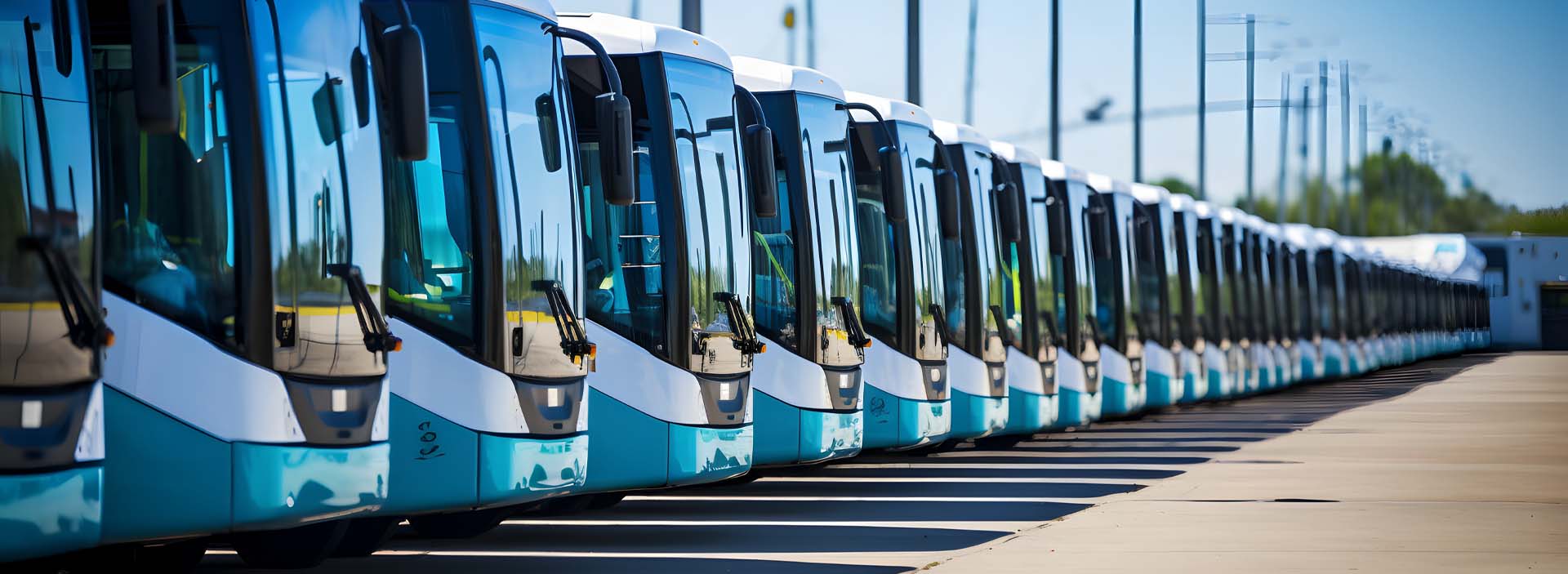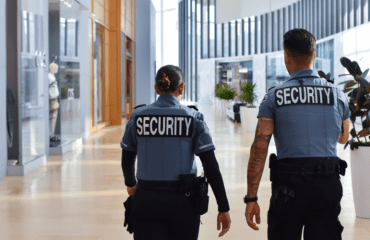Public transportation and private bus fleets play a vital role in keeping people and goods moving. However, bus yards, where buses are parked or maintained, can become targets for trespassing, vandalism, and theft. Effective yard security is essential to ensure the safety of the vehicles, staff, and equipment stored within these facilities. In this blog, we will explore how bus yard security help prevent unauthorized access, ensure smooth operations, and protect valuable assets.
The Importance of Bus Yard Security Services
Bus yards house expensive vehicles and equipment, making them attractive targets for intruders. Theft of fuel, parts, or even entire buses can result in significant financial losses and disruptions to transportation services. Yard security is designed to monitor, detect, and respond quickly to any suspicious activities, preventing unauthorized access and reducing the risk of accidents or damage. Without proper security, unauthorized individuals might enter the yard, putting employees at risk and causing operational delays. Therefore, bus yard security provides a protective layer that ensures both safety and business continuity.
Continuous Monitoring with AI-Powered Surveillance Systems
Surveillance cameras are the backbone of effective yard security services for bus fleets, providing real-time monitoring 24/7. Integrating AI-powered technology with surveillance systems enhances security by automatically detecting unusual activities, such as loitering near vehicles or forced entry attempts. Security personnel can receive alerts directly to their devices, enabling faster responses to potential threats. The footage from these cameras serves as valuable evidence in case of security breaches, thefts, or vandalism. In addition to providing real-time security, visible cameras act as a deterrent, discouraging criminal behavior before it occurs.
Securing Entry Points with Advanced Access Control Systems
Access control systems are critical for restricting entry to bus yards and preventing unauthorized individuals from entering the premises. These systems include keycards, biometric scanners, and PIN-based gates that ensure only authorized personnel can access the yard. For added security, multiple authentication methods—such as two-step verification—can be implemented. Security teams can also monitor entry logs to track movements, which aids in identifying suspicious activity or potential internal threats. A well-maintained access control system not only prevents trespassers from entering but also minimizes operational risks by keeping track of personnel and visitors. These systems are scalable, allowing upgrades as security demands evolve.
Patrolling Strategies to Deter Unauthorized Access
Patrols by trained security personnel are essential in large bus yards where intruders might attempt to avoid detection by stationary cameras. Patrols can be conducted both on foot and using mobile units to cover every corner of the property. Randomized patrol schedules are particularly effective in deterring intruders, as they prevent criminals from predicting security routines. Patrol guards also inspect high-risk areas such as fuel depots, maintenance zones, and parked vehicles. In case of suspicious activity, guards can take immediate action to address the situation and notify local authorities if needed, minimizing the chances of property damage or service interruptions.
Leveraging Smart Technology for Remote Security Management
Modern yard security services use advanced technology to enhance monitoring and control. Remote security management systems allow managers to oversee operations even when off-site, using mobile apps or web-based platforms. Through these platforms, security teams can access live surveillance footage, monitor alarms, and control access points in real-time. Geofencing technology also plays a role by creating virtual boundaries around the yard. If an intruder crosses these boundaries, the system sends an automatic alert to the security team. These smart services offer flexibility and convenience, ensuring that security measures remain effective around the clock, even when staff availability is limited.
Strengthening Security with Perimeter Fences and Alarm Systems
A secure perimeter is vital to keeping intruders out of bus yards. High fences with anti-climb features provide the first line of defense, preventing unauthorized access. These fences can be reinforced with barbed wire or electric deterrents, depending on the security needs of the yard. Motion-detecting alarm systems integrated into the perimeter provide an added layer of protection by triggering alerts if someone attempts to breach the fence. These alerts are relayed to on-site security personnel and monitoring centers, ensuring rapid response. In many cases, a combination of fencing, alarms, and surveillance is required to maintain inclusive security.
Training Security Personnel to Handle Emergencies and Intrusions
Effective yard security services require well-trained personnel capable of managing emergencies and preventing unauthorized access. Guards need to be equipped with the skills to identify suspicious behavior, handle confrontations calmly, and follow protocols when dealing with intruders. Emergency preparedness is also critical, with guards receiving regular training in handling break-ins, vandalism, and other security incidents. Communication skills are vital, as guards must accurately report incidents and coordinate with local law enforcement when necessary. A well-trained security team not only ensures a safe environment but also minimizes disruptions to operations, allowing the bus fleet to function smoothly.
Customizing Yard Security for Fleet Operators
Bus yards have unique security challenges depending on their location, size, and operational requirements. Yard security must be tailored to meet the specific needs of each facility. For example, a yard in a high-crime area may require enhanced patrols, additional surveillance cameras, and stricter access control. Seasonal changes may also affect security needs, with certain times of the year demanding increased vigilance. Security providers work closely with fleet managers to develop customized plans, ensuring that all risks are addressed. Scalable services allow for quick adjustments if the fleet expands or operational needs change, providing inclusive and flexible protection for the yard and its assets.
Conclusion
Bus yards are essential for the smooth operation of public and private transportation services, but they are also vulnerable to trespassing, theft, and vandalism. Implementing effective bus yard security services ensures that these facilities remain safe and operational. Through access control systems, surveillance cameras, trained security personnel, and smart technologies, intrusions can be detected and prevented. Investing in reliable yard security provides fleet operators with peace of mind, protects valuable assets, and ensures uninterrupted service. As security threats evolve, bus yard managers must continue to adopt advanced security measures and customize services to meet their unique needs.



